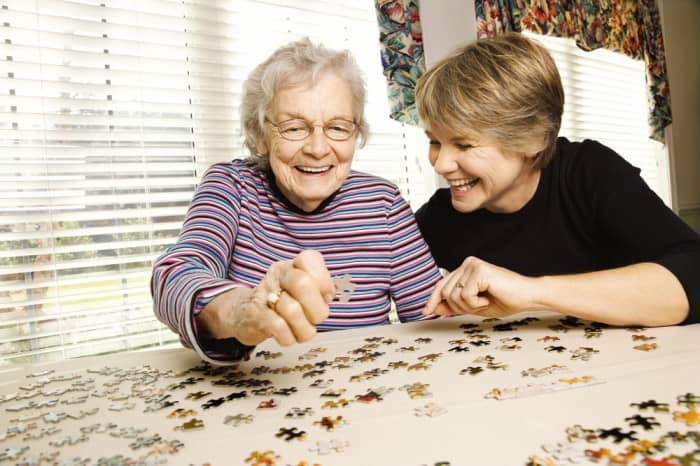
We all want to live as independently as possible for as long as we can, but vulnerable and older people may need a little extra help.
They could be struggling with daily tasks, have difficulty forming personal relationships, or need residential care or suitable accommodation to better meet their needs.
To formally establish whether your loved one needs that personal care and support, an assessment has to be carried out to determine whether a support plan is needed.
This blog will examine what we do during a care assessment, how best to prepare for it, possible outcomes, including financial assessments and self-funded care, and what support planning is available.
What is a care needs assessment?
A needs assessment takes around an hour, and establishes precisely what support a person requires to live as independently as they can without any physical or mental issues having a significant impact on their lives or health.
The local council has a legal duty to carry out a free needs assessment if an individual contacts the adult social services department and asks directly for care and support, if a relative or someone else contacts them, or your loved one is referred from hospital.
If you’re self-funded, we can carry out a care needs assessment for you or your loved one.
Factors the that will be considered
Anyone can ask for a needs assessment, even if they already have a carer, and at every stage, your loved one’s wellbeing and wishes must be taken into consideration.
The assessor should consider your loved one’s requirements and how they affect their care, whether they need help dressing or getting to work, supporting their choices and goals, or if they have preferences for their day-to-day care.
Urgent assessments
In some cases, care services are provided before a needs assessment has been conducted if it is believed your loved one needs urgent support.
We can carry out Community Care needs assessments within 48 hours to ensure the right support is in place.
Future needs assessment
Assessors must also take into account what might prevent future needs arising, and establish access to the appropriate mental health services, information, advice, facilities or resources.
They will also, of course, consider the needs of their family members during the assessment.
Refusing an assessment
An assessment can be refused, and under these circumstances the local council must ensure the person doing so has the mental capacity to refuse the assessment, and they are not at risk of neglect or abuse.
The person being assessed can also change their mind during the process, and their decision must be respected.
How to prepare for your needs assessment

It’s important to offer as much accurate and up-to-date information as you can for the assessment, including all the everyday tasks your loved one faces, and any physical or mental impairment, such as a brain injury or as the result of substance misuse, that needs support.
Providing updates about the good days and bad will give the assessor the broadest picture possible of your loved one and help identify their most pressing requirements.
Leaving anything out of the assessment could impact the support plan and even reduce the level of care recommended.
A complete personal history
Our assessment includes taking a complete personal history of you or your loved one. It includes their date and place of birth and ethnicity, as well as family and medical contacts.
It will also document their lives, from infancy and the circumtstances in which they grew up, childhood pets, hobbies and sports, their school days and first job, to their happiest memories and places they visited.
Past, present and future
The personal history also takes in people who are or were important to your loved one, as well we their achievements and what goals they are still aiming for.
It will examine their current day-to-day routine, and how they spend their time.
Our assessment checklist
The personal history helps create as complete a picture of your loved one, while our assessment checklist establishes how they feel about their lives and what they need to continue to live as they want.
It includes questions such as what is important to your loved on, whether they have the support they need to live independently and do what they want to do, if they have any medical conditions and whether they they think need help.
Having an independent advocate
Some people undergoing the needs assessment process don’t always understand the full ins and outs of the process, so it’s important to ensure they have someone present – an independent advocate – who can speak on their behalf.
They can help fill in forms, ensure personal details are correct, and sit with your loved one in meetings and assessments, and are often free of charge.
If your loved one is hard of hearing or has difficulty communicating or has another physical or mental condition that could affect their understanding or participation, make sure social services know before the assessment so they can prepare accordingly.
Telephone help
If you want to talk to someone over the phone about needs assessments, call us at 01778 219639.
How are assessments conducted?
There are several ways that a needs assessment can be carried out, but all of them will be conducted by a social worker, occupational therapist or suitably qualified, trained professional, such as our team.
Face to face assessment
This is the most common form of assessment and in England, all assessments of people with mental health problems should be held in person, under the The Code of Practice to the Care Act.
Supported self assessment
You or your loved one will be given a questionnaire to fill out. The self assessment form covers the same information as a face-to-face meeting and should be an accurate reflection of your circumstances.
Online or phone assessment
As the name suggests, this is conducted over the phone or via videoconferencing.
A joint assessment
This is when a needs assessment is conducted at the same time as another adult, such as a member of your loved one’s household or a carer’s assessment.
Combined assessment process
This assessment is done at the same time as another, separate evaluation, for example continuing healthcare for a family member.
What happens during our needs assessment process?

Our assessment process will explore every aspect of your loved one’s life, health, ability to communicate and do the things they want to do, safely and comfortably.
The assessor must consider whether your loved one can carry out two or more of the following tasks unassisted and without endangering themselves.
The eligibility criteria covers:
- Being able to eat and drink properly and maintaining a good diet
- Maintaining good personal hygiene and toilet needs
- Being appropriately clothed and having reasonable personal care
- Being able to safely make use of their home safely
- Maintaining a habitable home environment
- Developing and maintaining family or other personal relationships
- Accessing work, training, education or volunteering at local organisations
- Making use of local community facilities or services including public transport
We ask how they are managing everyday tasks like washing, dressing and cooking, whether they are able to move themselves in bed, or are remembering to take medication.
We also ask about their mental health, ensuring they feel they can speak about their views and choices, and ask about any specialist treatments.
If, during the assessment, it becomes apparent alterations are needed, your loved one could also be referred for a separate home assessment.
What if my loved one’s needs change?
A needs assessment should take into consideration fluctuating, unpredictable requirements – some days may be better than others.
It could mean your loved one is examined over a longer period of time to gain an accurate understanding of their day to day life and possible care and support needs, or the assessment is done over a shorter period.
However, the latter only happens if assessors are sure they have an accurate insight into your loved one’s overall needs.
The results of the needs assessment
After the full assessment, you will be sent the assessment’s results.
The decision will be made after comparing your loved one’s social care and support needs with a set of nationally agreed eligibility criteria which is used by all local councils.
Your loved one will qualify for social care and support if:
- they have a mental or physical need or illness
- they cannot unable to achieve two or more of the everyday tasks listed above
- there is a significant impact on their wellbeing without care and support
You will be informed in writing if it is decided your loved one’s eligible needs do not require social care at this stage.
Even in this instance, your local council can provide free advice about where you and your loved one can get help from your community’s support network.
If the assessment concludes your loved one qualifies for social care services and support and you are not self-funded, the next stage of the process is a financial assessment, which the local authority carries out under the rules laid out in the Care Act.
Financial assessment for the non self-funded

The local authorities will determine how much your loved one should pay toward their care by producing a detailed social care plan and personal budget as part of the financial assessment.
The local council social care plan will include:
- a statement of your loved one’s physical and mental health needs
- how those needs will be met
- information on any social services charges to pay
- support care worker details
- a date to review the assessment and services received
This should happen at least once a year, and a reassessment can be requested at any time if your loved one’s circumstances change.
Additional equipment and adaptations
Following the financial assessment, the local authority could also include disability equipment or home adaptations as part of the care and support plan.
Alternatively, depending on your loved ones’ eligible needs, ability to manage everyday life, and mental health requirements, they could recommend moving to sheltered housing, or getting care and support in a residential or nursing care home. We can help with this decision.
Paying for social care and support
Our blog explores self-funded social care and support, including the changes coming into force next October, but under the current system, someone who’s eligible needs require care in a care home after assessment must pay for it themselves, if they have assets worth more than £23,250.
If the assessment results in your loved one requiring social care in their own home, the £23,250 limit remains, but no longer includes the value of their home.
If your loved one has assets worth less than £23,250 but more than £14,250, they will be charged a proportion of their care costs, on a sliding scale.
How to complain about a local authority needs assessment
You have the right to complain if you disagree with the outcome of your needs assessment, or are unhappy with the way it was conducted.
If your local authority carried out the assessment, there ought to have a formal complaints procedure on its website and you should be told about it during the eligible needs assessment.
We can help with your loved one’s care journey
The professional team at Age Care Advice will ensure you will get the very best local care and support for your loved one, no matter their needs, throughout their entire care journey.
We have lots of experience undertaking assessments. We also work with GPs, solicitors and other health care professionals seeking urgent assessments or care support for their patients and clients.
To find out more, call us on 01778 219639, email agecareadvice.team@nhs.net or use this contact form and we’ll get back to you the same day.
